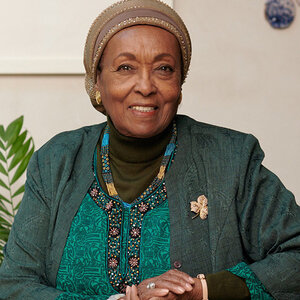Desmond Tutu Wins 2013 Templeton Prize
The John Templeton Foundation has announced that Desmond Tutu, the former Anglican archbishop of Cape Town, has won the 2013 Templeton Prize.
Established in 1972 by financier and philanthropist Sir John Templeton, the prize honors a living person who has made an exceptional contribution to affirming life's spiritual dimension, whether through insight, discovery, or practical works. Tutu will receive the prize — which, at more than $1.7 million, is the world's largest annual monetary award — at a public ceremony in London on May 21.
Tutu has worked for decades to promote spiritual principles such as love and forgiveness and help liberate people around the world. From his positions within the Anglican Communion in the 1970s, to his election as archbishop of Cape Town in 1986, to his appointment as chair of South Africa's Truth and Reconciliation Commission in the 1990s, Tutu has worked to advance a revolutionary policy of confession, forgiveness, and resolution that helped shepherd his nation from institutionalized racial repression toward democracy. More recently, he helped form The Elders, an independent group of former global leaders that is working to advance peace and human rights in trouble spots around the world. Tutu received the Nobel Peace Prize in 1984.
Tutu's life-long contemplation of such profound questions as "Do we live in a moral universe?" and "What is humanity's duty to reflect and live God's purposes?" reflect the deep interests of the prize's founder, Sir John Templeton, in fostering and recognizing spiritual progress. "By embracing such universal concepts of the image of God within each person, Desmond Tutu also demonstrates how the innate humanity within each of us is intrinsically tied to the humanity between all peoples," said Templeton Foundation president and chairman John M. Templeton, Jr. "Desmond Tutu calls upon all of us to recognize that each and every human being is unique in all of history and, in doing so, to embrace our own vast potential to be agents for spiritual progress and positive change. Not only does he teach this idea, he lives it."





